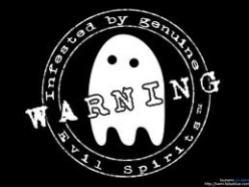 Prepping for lectures this coming week on the books of Samuel, I returned again to an article by Robin Routledge (Academic Dean of Mattersey Hall; Author of the well-received Old Testament Theology: A Thematic Approach) entitled, “‘An Evil Spirit from the Lord’ — Demonic Influence or Divine Instrument?” (Ev.Q. 70.1 [Jan-Mar 1998]: 3-22). His discussion of the connections (and disjuncture) between the Testaments concerning “evil” spirits offers potential direction in the development of a biblical demonology (or perhaps a more broadly conceived pneumatology).
Prepping for lectures this coming week on the books of Samuel, I returned again to an article by Robin Routledge (Academic Dean of Mattersey Hall; Author of the well-received Old Testament Theology: A Thematic Approach) entitled, “‘An Evil Spirit from the Lord’ — Demonic Influence or Divine Instrument?” (Ev.Q. 70.1 [Jan-Mar 1998]: 3-22). His discussion of the connections (and disjuncture) between the Testaments concerning “evil” spirits offers potential direction in the development of a biblical demonology (or perhaps a more broadly conceived pneumatology).
I find his own proposal at least more satisfactory than Hermann Gunkel’s proposal about there really only being “spirit” (whether good or “evil” being regarded as secondary) in the OT.* Though, the distinguish-ability of רוּחַ (ruach) in the Hebrew Scriptures is certainly not always an easy task. Nor is it made more simple by the descriptive רָעָה (ra’ah) often rendered “evil” or “troubling” in connection with the S/spirit (1 Sam.16:14-16, 23; 18:10; 19:9; cf. Judges 9:23; 1 Kings 22:22).
I can appreciate Dr. Routledge’s proposal to read the NT “against the background of the Old” in order to potentially gain a “proper understanding of the Biblical whole” (3). Essentially, his argumentation boils down to ANE perspectives on the “divine assembly” in relation to the Israelite appropriation of such and thus allows for a multiplicity of “spirits” in the realm of the God of Israel. He extrapolates that this line of reasoning may in fact be conducive to a better understanding of the the inter-relation of Old and New Testaments on the issue of the “evil” and “unclean” spirit/s.
Here’s the Abstract on Routledge’s article:
This article considers two important questions raised by 1 Sa. 16:14, namely what does the OT understand by the term ‘evil spirit’, and, what is the relationship between such spirits and Yahweh? Although demons come to prominence in later Rabbinic writings, the OT accepts the existence of supernatural beings, good and evil and of a heavenly assembly, presided over by Yahweh, to which all such beings may have access. This suggestion, that the scope of the divine assembly is much more comprehensive than is sometimes envisaged, points to Yahweh’s control over evil spiritual beings and their instrumentality in the fulfilment of the divine purpose. The moral question this raises is given some consideration, and the consistency between Old and New Testaments is noted.
What are your thoughts on Routledge’s article? Is this helpful for a biblical theology of “spirit/s”?
_______________
* The Influence of the Holy Spirit: The Popular View of the Apostolic Age and the Teaching of the Apostle Paul (Reprint of English translation by Roy A. Harrisville and Philip A. Quanbeck II; Minneapolis, MN: Fortress, 2008), 5-6.

Certainly a less popular option. Some hold that OT phrases, such as Job’s “should we accept good from God, and not evil?”, show that the OT allowed God to be the source of evil as well as good, which is even less popular. In light of that, I think Routledge’s option is a nice middle ground.
There are arguments about whether or not the satan is welcome in the divine assembly in Job, but in either case it’s clear that God holds all of the power. Routledge’s proposal makes me picture evil spirits in the divine assembly eager for any opportunity to afflict and destroy, and God allowing them to at select moments for his own purposes. This is certainly possible given the text, but is problematic from the perspective of theodicy or the problem of evil.